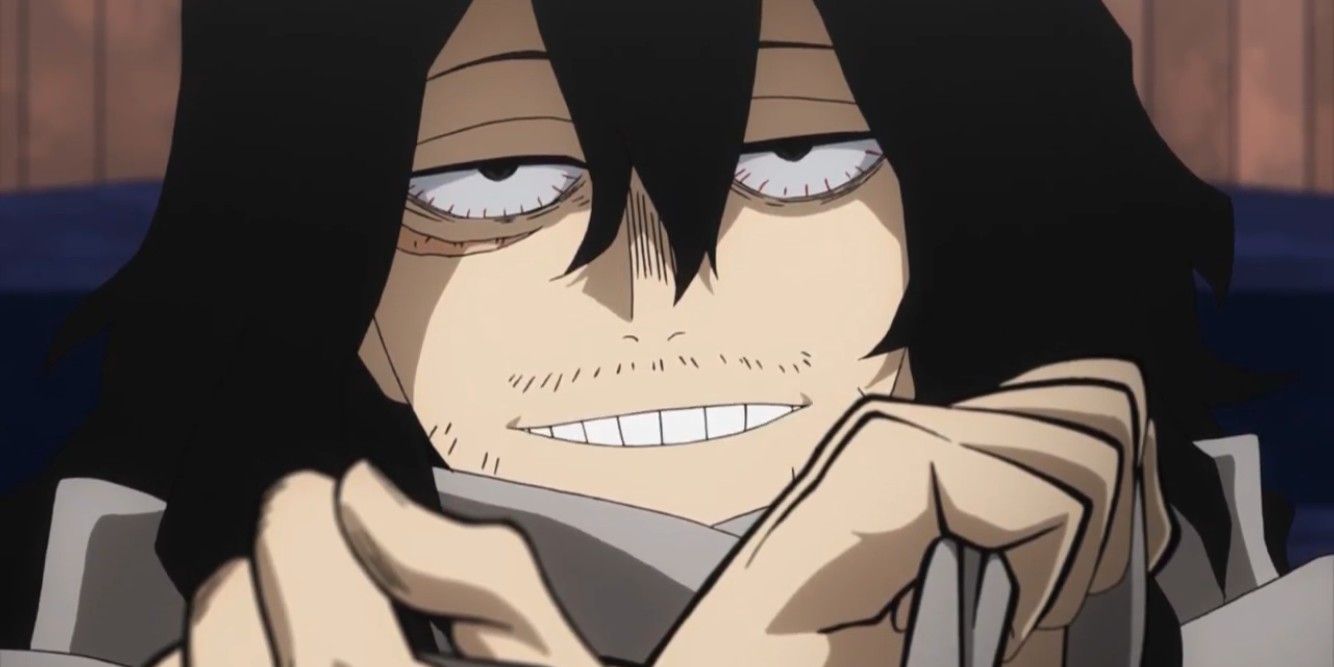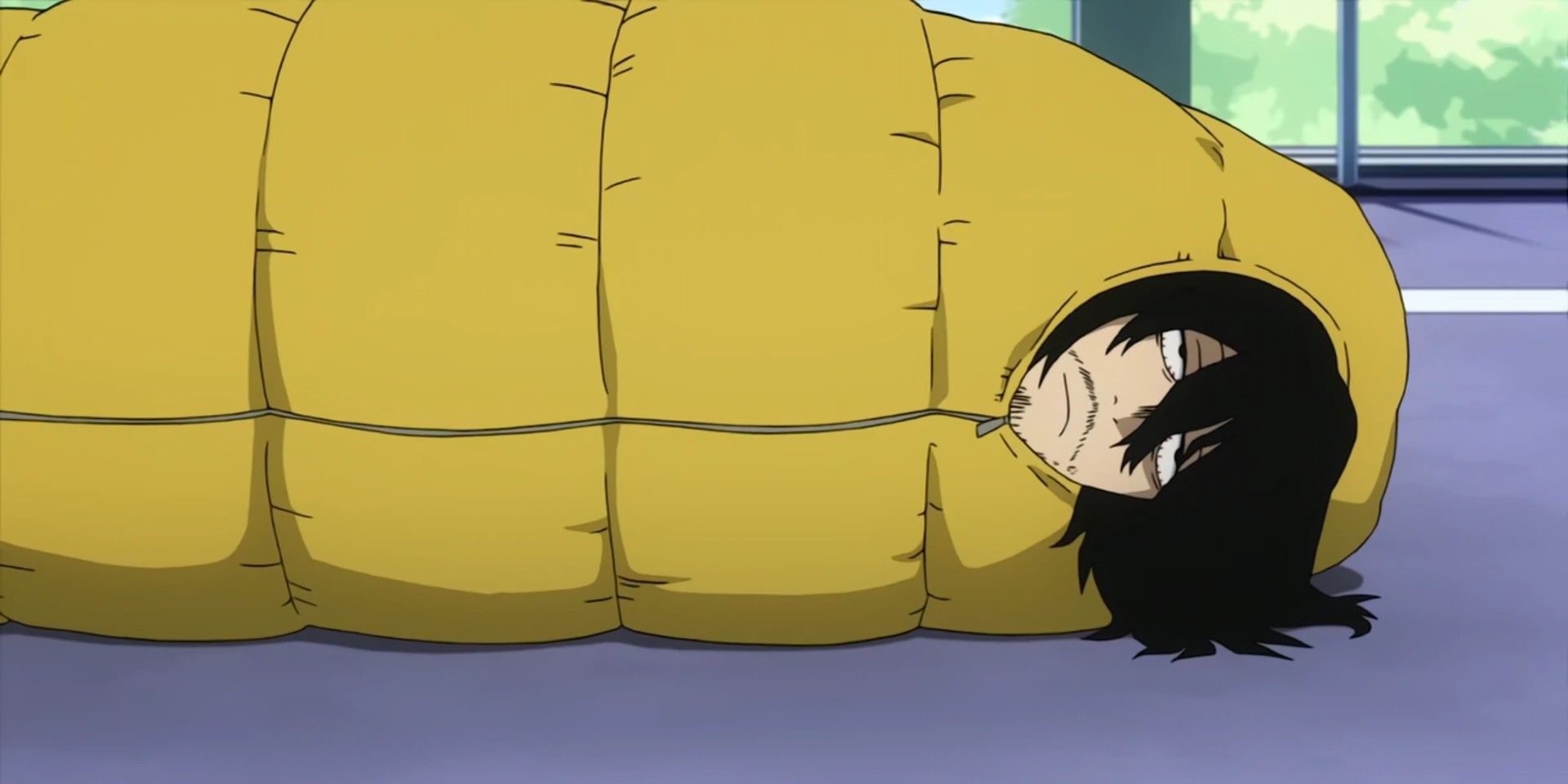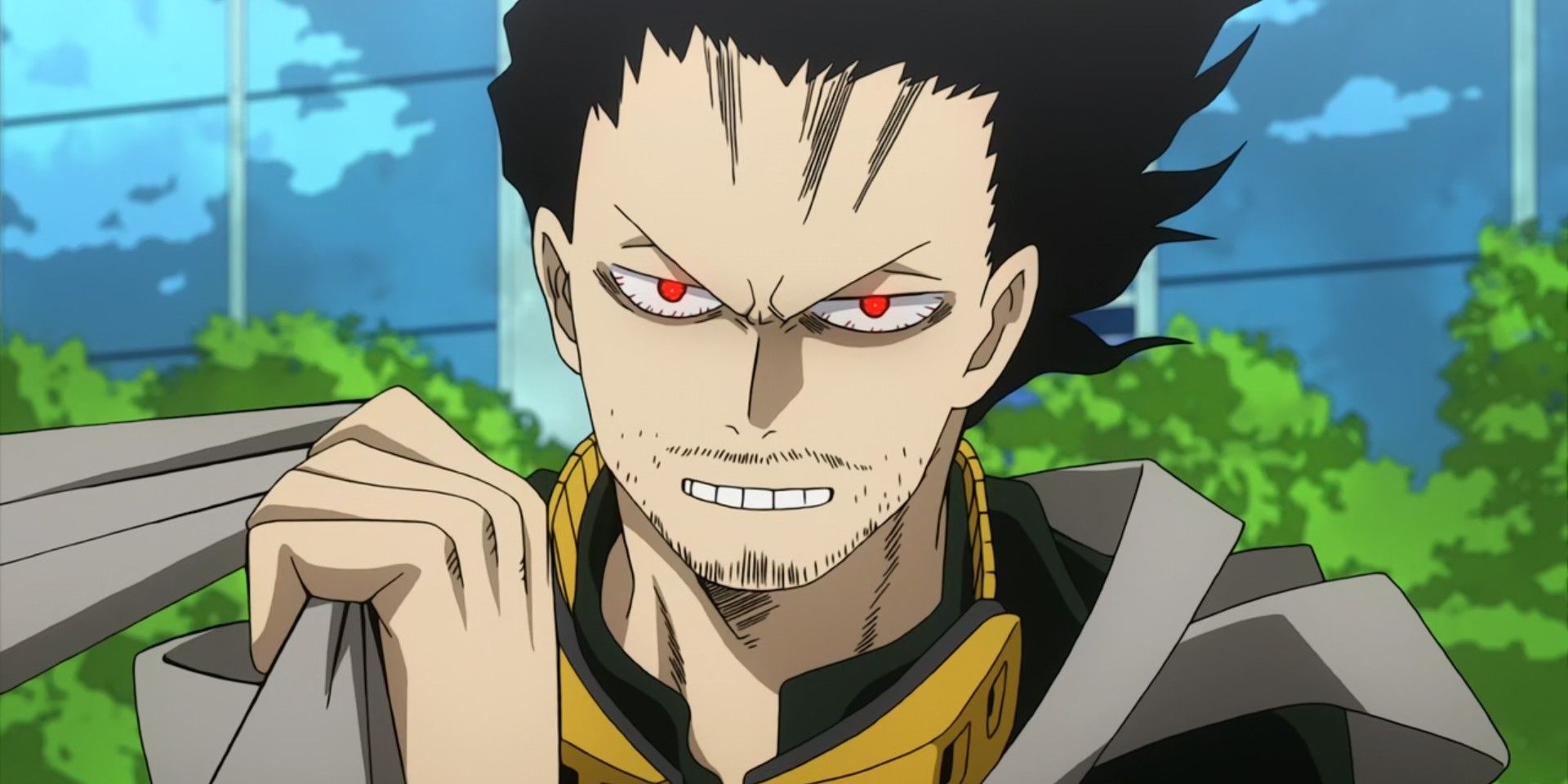In the blatantly over-the-top world of My Hero Academia, one man stands tall as the representation of everything it is to be middle-aged and overworked: Shota Aizawa, the Erasure Hero: Eraserhead. As U.A.'s Class 1-A homeroom teacher, Pro Hero Aizawa is a mentor; a guiding hand for wayward students, but most of all, he's exhausted, which makes him the most relatable character in the series and a proper reflection of the real-world cost of an intense work culture.
My Hero Academia follows the adventures of young heroes on their journey to mastering their so-called Quirks, a power bestowed upon them at an early age. Not everyone develops these Quirks naturally, including the series' main protagonist, Izuku Midoriya, who inherits his powers from the world's greatest hero, All Might. When Midoriya enrolls at U.A., he and the others are frightened by Aizawa's introduction: cocooned within a sleeping bag, his disheveled face peeking out.
Aizawa's Quirk can disrupt other Quirks, making them unusable for as long as he keeps his eyes on the person or persons he's targeting. Once he blinks, his influence ends, a depressing allegory for the plight of teachers for whom their student's success rests solely on their being 100 percent committed. Unfortunately, this often comes at the cost of personal physical and mental health, and in particular, for Japanese educators.
For middle school and elementary teachers in Japan, working an excess of 50 hours per week is not uncommon, according to The Teaching and Learning International Survey conducted in 2013 by the Organisation for Economic Co-operation and Development. In 2018, the Japan Times published an article reflecting the damning facts of being a teacher in Japan: of all the countries surveyed, Japanese middle-school instructors clock the most hours worked per week at 53.9, with the international average being 38.3. In 2016, a survey conducted by the education ministry found that elementary school teachers work an average of 57 hours and 25 minutes per week while up to 63 hours per week was recorded for junior high teachers.
Aizawa, however, rarely complains. The dedication he shows to his students -- and his sometimes harsh teaching tactics -- reflects his desire to see his students succeed, and in doing so, to be a success himself. However, his exhaustion is palpable, a reflection of the intense societal pressure that places a priority on being “plus ultra” at work over one's own mental and physical health.
In an article published in January on the BBC, the part of Japanese culture that lays guilt on a worker in order to perform is scrutinized and references karoshi -- the concept that one can die due to work-related stress. Attitudes are changing as younger workers enter the workforce globally, however. A 2017 online survey conducted by Expedia shows that 62 percent of Millennials reported feeling "vacation deprived," higher than any other age group surveyed. Even within the hierarchy of the U.A. classroom, the ideological gap between generations is present. As Aizawa applies eye drops to his weary, strained eyes, his students goof around and aren't afraid to take leisure time for themselves, but opportunities to utilize vacation time are slow to manifest, especially in Japan.
In 2018, the Work Style Reform Bill passed in Japan's national legislature, requiring a minimum vacation time and limits excessive working hours. Sadly, the only instance of Aizawa taking a break from educating comes as the result of him being hospitalized.
Vacation and work ethic aside, Aizawa is the stand-in for older anime fans of the series. As school children run amok, wreaking havoc and causing trouble, Aizawa's eyes twitch and 30-somethings grow frustrated along with him. Aizawa's effective method of teaching superhero skills lacks urgency in one particularly depressing way: none of his students can relate to the tired hero, instead, they all think he's a bit odd. In this way, Aizawa is the cursed Cassandra of Greek mythology, doomed to reflect his prophecy of aging only to be ignored. After all, growing old is something that only happens to old people, right?
As an elite instructor of the U.A. Academy and fan-favorite, Aizawa is more than a teacher; he's the symbol of the ordinarily overworked.



